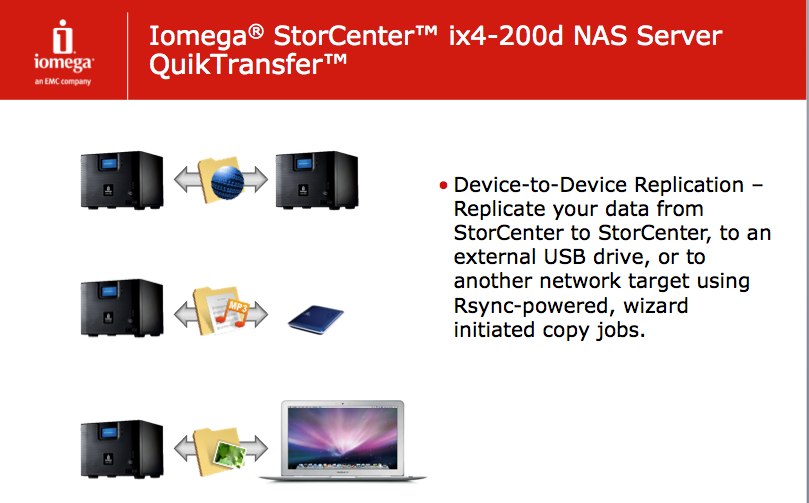Iomega's NAS: Is the mainstream ready for network storage?

Is the average household ready for a network-attached storage device?

The device - officially called the Iomega StorCenter ix4-200d - comes in 2-terabyte, 4-terabyte and 8-terabyte capacities and features EMC's LifeLine software, which is designed for cross-platform support for PC, Mac and Linux computers.
Among its features:
- Device-to-Device replication allows users to backup and copy files between the ix4-200d and any other NAS device without the need for a client computer by setting up automatic backups or with a QuikTransfer button on the device.
- VMWare-ready certification: The device is certified as both NAS and iSCSI storage for VMWare vSphere.
- Video Surveillance: Supports networked video cameras for real-time monitoring and video capture directly to the device without the need for a dedicated computer.
- Support for Apple's Time Machine allows Mac users running OS X 10.5 or better to automatically back up their systems using Apple's built-in software.
Network-attached storage is nothing new but those that see a future in the consumer market might just be on to something. Consider that many homes now have multiple PCs and that many households likely share music and photo libraries among the users of those various machines.
By storing things like tunes and pics, as well as important documents (archived tax returns, insurance documents and so on), on a storage device other than the PC not only makes them accessible by everyone but also allows them to be located in case a computer goes down.
Maybe these devices will also help consumers to finally take regular backing up of their data seriously.